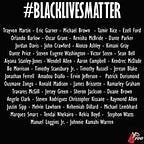Barbenheimer minus Barbie
With all the talk of Oppenheimer being the sort of film that will “save the movies” that it needs to be seen in the most extreme and grandest format if possible (70mm IMAX etc.) it’s surprising how little of a visual spectacle Oppenheimer actually is. While there are some impressive visuals and especially impressive sound design and editing around the actual “Trinity” successful atomic bomb test, much of the key dramatic action of the film takes place in what one of the characters accurately calls a “shabby little room” and is just a bunch of men (and one woman at one point!) talking. Ironically Christopher Nolan’s previous film, Tenet, would have been a much better fit for the saving the movies/large format treatment and it got unceremoniously dumped onto HBO Max (which no longer exists) during the height of the COVID pandemic.
Oppenheimer unfolds along at least three different timelines, two of them taking place in 1954 and 1959, well after World War 2 and the events for which Oppenheimer is most famous. It’s fairly confusing, especially since no chyron is ever shown saying when or where anything is taking place. What is happening (SPOILER ALERT for historical events I guess) is that Oppenheimer is in a hearing about him trying to appeal the loss of his Q level security clearance, the highest one you can get and, yes, of Q Anon fame. That’s right, Oppenheimer is the story of a man just trying to get his Q clearance back. A lot more happens over the course of the three hour film but the way the film is structured this is something like the climax. I’m surprised more reviewers have not made this clear.
The reason for the loss of the Q clearance is a long term complex “frenemies” type relationship with Lewis Strauss (Robert Downey Jr.’s character), one of those massive 20th century figures who isn’t as famous in our time. It seems like despite the title Nolan wants to make the film a bit of a “two hander” with Oppenheimer and Strauss squaring off throughout the middle of the 20th century. Only in that respect it’s not a fair fight because while the viewer has extensive access to Oppenheimer’s inner life and motivations, Strauss is hard to figure out other than just generally being an arrogant powerful man. (And the same could be said of Cillian Murphy’s Oppenheimer but he comes off as more sympathetic because we know what he’s thinking)
In the movie’s version of events Strauss engineers the Q clearance humiliation because he feels like Oppenheimer humiliated him in a public hearing over whether it was safe to ship atomic isotopes to our allies for study and because he feels like Oppenheimer turned Albert Einstein against him when Lewis was in charge of the Institute of Advanced Studies at the same time Einstein was there. It seems like pretty thin gruel to the viewer but this is part of what’s driving one of the big conflicts of the movie. Another disagreement between Strauss and Oppenheimer is that Strauss feels the US should move straight to producing far more destructive Hydrogen Bombs (H Bombs) which Oppenheimer disagrees with but this is presented as more of a tactical disagreement than an ideological or moral one.
Essentially it feels like Nolan read the massive Oppenheimer biography American Prometheus: the Triumph and Tragedy of J. Robert Oppenheimer, went on to read first hand sources such as government transcripts etc. and partially wanted to make something like an atomic age The Social Network, a film about professional/personal vendettas among extremely smart people, where great one liners and fist pumping moments are made out of the transcripts of depositions etc. And to some extent he succeeded.
But the movie really comes alive when it’s a more straightforward depiction of making an atomic bomb. There it’s another kind of two hander with Murphy/Oppenheimer and Matt Damon as General Leslie Grove. The two butt heads but for the most part are on the same page. Though it sounds sacrilegious to say it at times it almost feels like they’re the crew leaders in a heist film, especially with all the crew assembly they do. (“You son of a bitch I’m in!”) Nolan is at his best when he’s documenting a complex process happening so the actual Los Alamos portions of the movie are very strong.
The film is also very interesting in the way it approaches Oppenheimer’s supposed leftism/radicalism, which is the underlying reason that enemies such as Lewis had anything to impugn him with. I don’t know what the underlying historical record is but to me it’s pretty clear that Oppenheimer was no more than a typical liberal, but brushed up against actual Communist Party members and fellow travelers was common for an academic in the 1930s. Though he supported unionizing drives among academics etc. Oppenheimer made sure never to join the Communist Party and was always doing a delicate dance around these issues, which became most complex around the “Chevalier incident” which is well dramatized in the film. Though these issues caused some difficulties for Oppeheimer in the runup to the atomic bomb (when the Soviet Union was still our ally as Oppenheimer and many others point out) they were all forgotten and pretty much made meaningless by the fact that he was willing to lead the project of making the bomb for the US and even participate in meetings picking out US targets. That such things were brought up in 1954 was pure pettiness, but also extremely far from the worst consequences anyone suffered from McCarthyism.
But this is what Nolan has chosen to make the centerpiece of this engaging, oddly structured film
